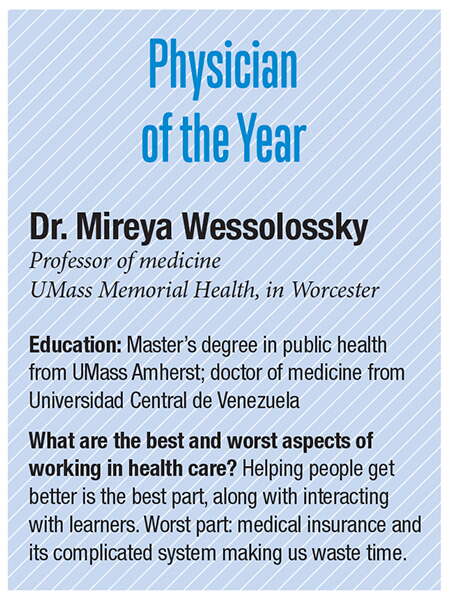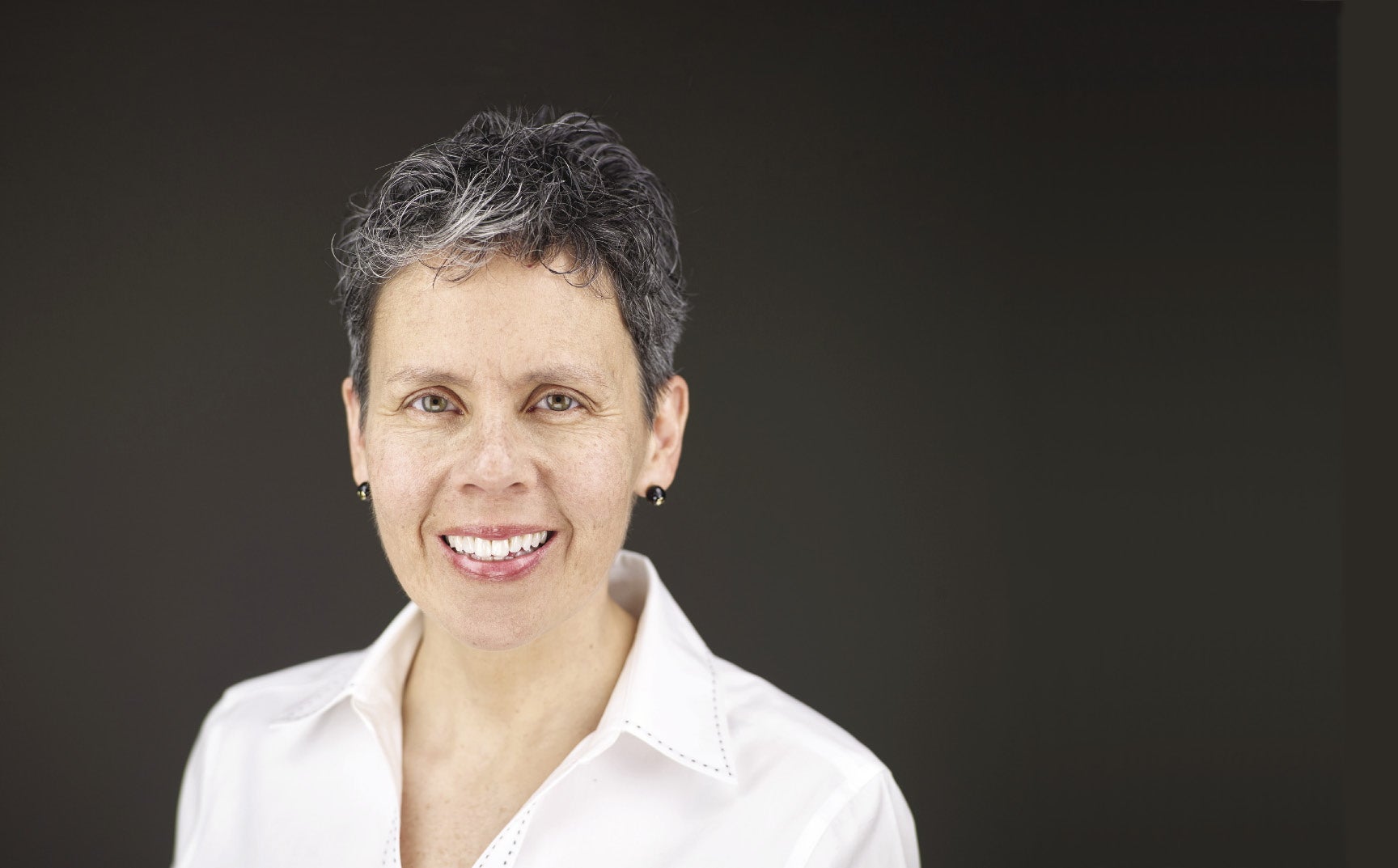
Champions of Health Care: Wessolossky is a community-forward kind of doctor
 Photo | Courtesy of Kathryn Costello
Dr. Mireya Wessolossky, professor of medicine at UMass Memorial Health
Photo | Courtesy of Kathryn Costello
Dr. Mireya Wessolossky, professor of medicine at UMass Memorial Health
Dr. Mireya Wessolossky’s fascination with infectious diseases coincided with a devastating time in U.S. history: the AIDS epidemic.
Wessolossky was completing her internal medicine residency in the 1990s when many of her patients had contracted AIDS, and the majority were dying.
“It is a purpose, I think, that I found to help others in need,” she said.
Today, Wessolossky is an infectious diseases specialist at UMass Memorial Medical Center in Worcester. At parent organization UMass Memorial Health, she serves as medical director of the system’s Antimicrobial Stewardship Program, an initiative working to curtail the overuse of antibiotics, which can result in antibiotic resistant bacteria. She is co-medical director of UMMH’s HIV clinic, overseeing five case managers and four nurses serving about 800 patients with HIV.

Wessolossky works as the medical director of UMMH’s clinic at AIDS Project Worcester, a nonprofit dedicated to improving the lives of those impacted by HIV/AIDS and other infectious diseases through advocacy and education. In this position, she provides direct care and supervises the clinic nurses.
A fierce advocate for preventative care, Wessolossky has worked with the Massachusetts Department of Public Health to spearhead initiatives, such as making the COVID and MPox vaccines available through APW to those in marginalized populations. During the 2022 Mpox epidemic, APW was the sole location in Worcester County offering the vaccine.
Wessolossky is a community-forward kind of doctor, said Michelle Smith, CEO of APW. She prioritizes meeting with patients outside of a hospital setting, which is not always accessible, especially for those often shunned by healthcare systems.
“It can be very, very intimidating, particularly for the majority of our client base, who are [involved in] a lot of substance use. And you know, they deal with a lot of stigma, discrimination, just fear. But she's committed to that population and all the populations,” said Smith.
Wessolossky works to make sure people have access to the care they are comfortable with seeking, said Smith. She doesn’t define health care the way society defines it; one example being her harm reduction approach to care.
Through her work with APW, Wessolossky supports the organization’s syringe service program, which provides access to sterile needles and syringes to those who use drugs intravenously. The practice has been considered controversial, but for Wessolossky, it’s a proven method to support the health of her patients.
“Those are the people that she's extremely passionate about and wants to make sure that they stay as healthy as they possibly can, regardless of their substance-use journey, regardless of their homelessness status, regardless of any criminal activity,” said Smith. “None of that plays any factor in her wanting to make sure that people are as healthy as they could possibly be.”
“We all have the responsibility to have some compassion, because that is the most important thing … to have compassion for people who are suffering,” said Wessolossky.
That is how Wessolossky views many of the populations she works with: people who are suffering and can use support.
“Whatever history they have in the past that made them feel awful, and by using drugs, they feel at that moment very good. And who doesn't want to feel good?” said Wessolossky.
Her humanistic approach is one of many reasons she is in a class of her own as a provider, said Smith.
Wessolossky is very honest, but at the same time, very compassionate, Smith said. She works to build relationships on the foundation of dignity and respect, no matter how they look, present, or what they’re dealing with that society deems taboo or uncomfortable.
These caring connections are a cornerstone of Wessolossky’s work. She has seen many instances in which these relationships end up leading to her patients choosing to enter recovery.
“Sometimes it’s that connection that you have with the patient that can make them feel, ‘Oh, you know, somebody cares about me,’” she said.
Wessolossky doesn’t have a formula for how she approaches care for the populations she works with. Instead, it’s about being present in the moment and communicating with that presence that she’s not judging. She’s there to help.
“You may not solve the problem entirely, but at least at that moment, you make them feel that they matter for you,” she said.
Mica Kanner-Mascolo is a staff writer at Worcester Business Journal, who primarily covers the healthcare and diversity, equity, and inclusion industries.












0 Comments